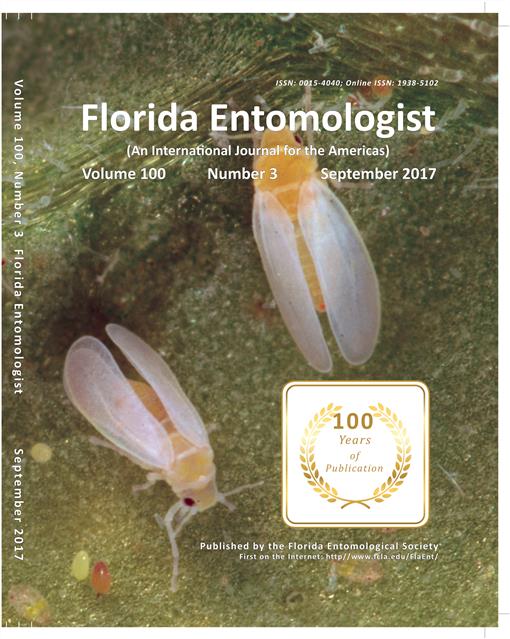The Asian citrus psyllid (Hemiptera: Liviidae) transmits a bacterium responsible for huanglongbing, a serious citrus disease. Insecticidal control of the psyllid is a key tactic used to manage the disease, but host plant resistance may hold some promise and clues in the search for alternative tactics. Results of a field survey revealed that relatively large infestation densities of the psyllid developed on conventional Citrus (Rutaceae) and citrange (Rutaceae) cultivars but not on any of 6 Poncirus trifoliata (L.) Raf. (Rutaceae) cultivars. Poncirus trifoliata is a species closely related to Citrus, and citranges are hybrids of sweet orange and P. trifoliata. Reduced colonization by the psyllid on P. trifoliata was largely a result of reduced rates of oviposition. Poncirus trifoliata resistance to oviposition was not observed in 4 citrange cultivars.
How to translate text using browser tools
1 September 2017
Field Survey of Asian Citrus Psyllid (Hemiptera: Liviidae) Infestations Associated with Six Cultivars of Poncirus trifoliata (Rutaceae)
David G. Hall,
Matthew G. Hentz,
Ed Stover

Florida Entomologist
Vol. 100 • No. 3
September 2017
Vol. 100 • No. 3
September 2017
citrus greening
Diaphorina citri
enverdecimiento de los citricos
Huanglongbing
Liberibacter




